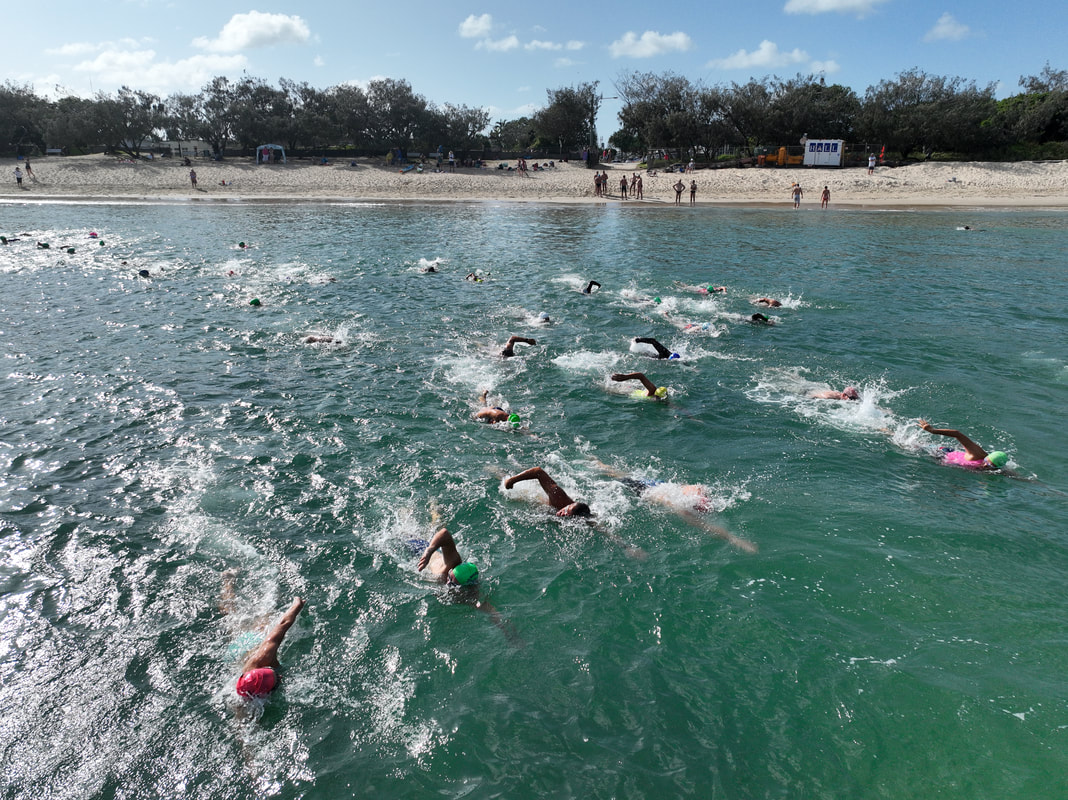|
Ocean swimming has become increasingly popular over the last few years, especially after Covid pool closures sent many pool swimmers into open water in order to keep up their swimming. More and more people are keen to give it a go, including some who do not have much pool fitness. As much as you might want to skip the pool (and the chlorine) altogether, it is important to have a solid pool swimming fitness before you head out into the open water. It doesn't mean you have to commit to the pool for life, but it is a necessary stepping stone for a novice open water swimmer.
First of all it is essential that you master fundamental swimming skills such as proper body position, breathing and stroke mechanics. These skills are crucial in any type of swimming, especially ocean swimming. Proper technique will also allow you to swim more efficiently and conserve energy, allowing you to swim further. You don't want to head out the back at Bondi if you are flat out making 25 metres of freestyle or you swim with your head out of the water because you've never learned to breathe properly. Getting your basics right in the controlled environment of the pool will build your confidence much faster than in the unpredictability of the ocean. Remember in a pool you know the depth, the temperature and the distance from end to end. You also have a black line to follow to keep you on track. The pool also presents you with the same conditions every time you go there (unlike the ocean). Pool swimming helps you build endurance and stamina, which are essential for swimming longer distances in the ocean. Ocean conditions can be challenging with waves, currents, and tides, and being a strong pool swimmer can help you handle these conditions more effectively. Having a solid base fitness will stand you in good stead if you end up a long way from shore or get pushed around by waves, both of which can sap your energy quickly. Knowing in your head that you are capable of swimming one or two kilometres can remove the anxiety of a long swim back to shore should you unwittingly end up further out than you planned. Swimming in the pool allows you to mix up your routine and include sprints, distance, short rest and other training techniques that build your aerobic and anaerobic fitness, both of which are essential for ocean swimming. Anaerobic fitness will get your through a set of big waves without panic and aerobic fitness will get you out around the buoys on longer swims. Short rest training will make you comfortable having a quick rest en route, knowing you can pick up again and keep going. Being a strong pool swimmer will also help you with the psychology of ocean swimming. Knowing you are fit and confident is the baseline for heading out into open water as you can never be sure what you might encounter on any given day. Being worried that you can't breathe on one side or can only do breaststroke will induce a level of anxiety that will ruin your open water swimming experience. If you feel overwhelmed at the idea of doing laps and aren't really sure how to go about it you could join an adult squad or make use of a set program to give you some guidance. Get Swimming (www.getswimming.com.au) has a Couch to 1K program if you are a real beginner, or, also has 10 Pack program sessions for 1, 1.5 and 2 km sessions that you can use to improve your pool swimming. In summary, being a confident pool swimmer is an essential prerequisite for becoming a successful ocean swimmer. The skills, stamina, and confidence developed in the pool provide a strong foundation for tackling the unique challenges of open water swimming. Once you have reached a good level of fitness, a regular pool session will hold you in good stead even if you do most of your swimming out in the ocean.
0 Comments
Leave a Reply. |
|
|
Disclaimer: Mooloolaba Spit Ocean Swimmers is a social swimming group that swims across Mooloolaba Bay. We do not provide water safety and it is up to each swimmer to determine on any given day whether or not they are able to complete the swim (approx 850 m each way). Ocean swimming can be a hazardous activity and is undertaken by each individual at their own risk.
|


